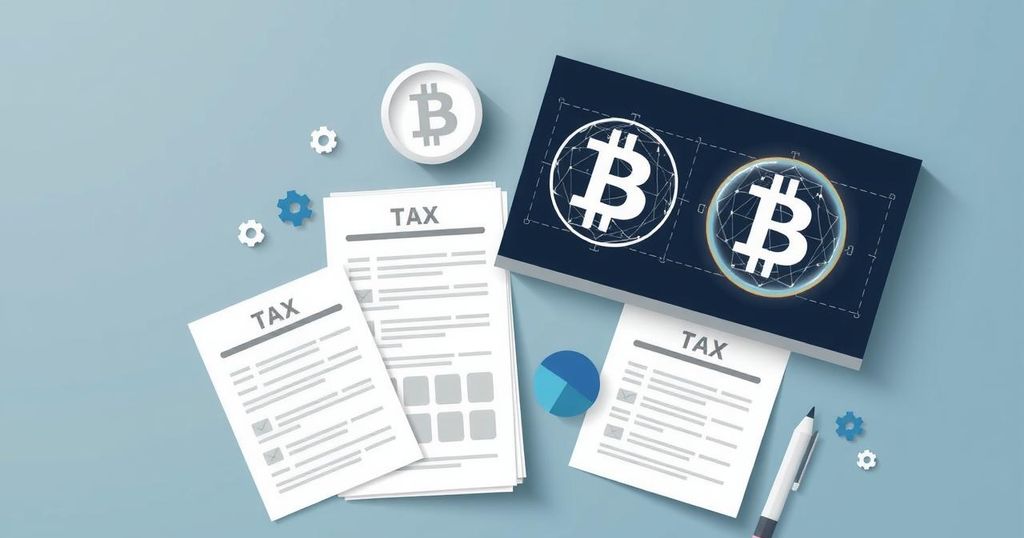India Increases Enforcement on Cryptocurrency Tax Compliance
India’s tax authority is intensifying its enforcement on cryptocurrency reporting, sending notices to taxpayers about unreported income from virtual assets. The Central Board of Direct Taxes is scrutinizing compliance, revealing discrepancies between crypto exchange reports and taxpayer returns. A flat 30% tax rate on crypto gains, along with the NUDGE initiative, aims to guide compliance without heavy penalties. Traders must now diligently report earnings or face repercussions, while exchanges are under pressure to ensure accurate reporting.
India’s tax authority is ramping up its efforts regarding cryptocurrency. A significant number of taxpayers are receiving notifications about unreported income linked to virtual digital assets. This initiative is part of a broader strategy to identify hidden gains and combat potential money laundering associated with digital currencies.
According to officials from the Central Board of Direct Taxes, the enforcement is closely examining if taxpayers are properly reporting their crypto transactions in Schedule VDA of their income returns. Many individuals identified as high risk have either reported inaccurately or failed to report altogether. Discrepancies between the tax deducted at source (TDS) reports from cryptocurrency exchanges and those noted on income tax returns have triggered numerous alerts and communications from the tax authority.
Section 115BBH of the Income Tax Act stipulates a flat rate of 30% tax on profits earned from the sale of virtual digital assets. Taxpayers can only deduct the original purchase cost of the assets with no allowance for other deductions. Furthermore, there are limitations on claiming losses, which means such losses cannot be offset or carried forward. Taxpayers who attempted to claim cost indexation or losses via different headings may now face additional interest and penalties.
This represents the third iteration of the “NUDGE” (Non-intrusive Usage of Data to Guide and Enable) campaign in a span of six months. The previous campaigns were centred on undeclared foreign assets and erroneous claims related to political donations. The approach aims to encourage compliance using data analytics instead of traditional raids. The tax department is leveraging bank data, TDS records from crypto service providers, and even blockchain technology to guide taxpayers towards accurately reporting their earnings.
For traders engaging in small-volume transactions, the recent developments have notably raised the stakes. If they have realised profits from cryptocurrencies during the 2022-23 fiscal year, they are now obligated to report that gain. Failing to include relevant trades in Schedule VDA could lead to receiving tax notices along with unexpected liabilities.
Pressure also mounts on cryptocurrency exchanges to ensure that their reporting is accurate. Any errors in their TDS submissions could lead to deeper scrutiny of their users. The anticipation now lies in how traders and service providers will adapt – whether by enhancing their record-keeping practices or potentially scaling back on trading activity to sidestep hefty tax liabilities. On a brighter note for institutional participants, the clarity of these regulations might attract more serious investors into the crypto market, offering a pathway for legitimate engagement in the digital asset space.




Post Comment